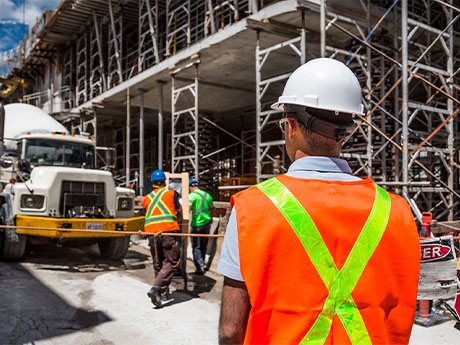AUSTIN, TEXAS — Delayed payments for wages and invoices are projected to represent an estimated $208 billion in excess costs to the construction industry this year, up 53 percent from $136 billion in 2021, according to a newly released report from Rabbet, an Austin-based construction finance software provider.
Rabbet’s 2022 Construction Payments Report surveyed 137 general contractors and subcontractors across the U.S. about the speed of payments in the industry and examined the growing impact on the cost for the broader sector. The report studied how general contractors and subcontractors across the country managed working capital, bidding decisions and project risks in the face of slow payments during the last 12 months. The survey was conducted online in September.
Forty-nine percent of subcontractors reported that over the past 12 months, they waited longer than 30 days on average to receive payment from general contactors. Thirty-seven percent of respondents indicated that work had been delayed or stopped in the last 12 months due to delays in payments to crew members, up from 28 percent in 2021.
Additionally, 27 percent of subcontractors reported having filed a lien in the last 12 months to keep possession of a property until their firm received payment for their work.
The Impact of Floating Payments
Sixty-two percent of general contractors stated that they’d incurred billing charges, financing charges and other costs when floating payments to others in the last 12 months.
Floating payments occurs when money is fronted for services prior to receiving the funds. Construction loans differ from traditional loans in the sense that funds are dispersed in phases on a scheduled basis as the project takes shape. This allows banks to protect their interests and mitigate potential risks. A project developer typically submits invoices monthly, and requests funding from the bank to be able to pay for those invoices. When contractors aren’t able to pay their crews, it oftentimes results in higher costs and longer delays.
To float payments, 49 percent of general contractors claimed they rely on credit cards to cover projects. Forty-one percent reported relying on lines of credit, 40 percent on business savings and 28 percent reported on personal savings. Most notably, 19 percent reported relying on retirement savings, a sharp increase from 2 percent of general contractors in 2021. Survey respondents were not limited to one response.
As for subcontractors, 51 percent reported relying on credit cards to float payments, 46 percent on business savings, 37 percent on lines of credit and 19 percent on personal savings. 17 percent of respondents described relying on retirement savings, which has nearly doubled from 2021.
“As these realities set in, the implications for contractors grow tremendously,” says Rabbet CEO Will Mitchell. “The risk of contractors going out of business skyrockets in environments like this and furthers the necessity for a better payment process in general.”
Rising material costs and inflation are also major concerns for survey respondents. Fifty-nine percent of general contractors reported that increased material costs negatively impacted cash flow over the last year. Fifty-three percent also reported that inflation had impacted cash flow.
Additionally, 53 percent of general contractors reported that increased material costs had prevented them from bidding on a project in 2022. Forty-one percent reported that inflation had prevented them from bidding on a project in 2022.
Taking Steps to Reduce Financial Risk
Survey participants indicated that they had begun to exercise more caution and perform thorough research before submitting bids due to the risk of rising costs impacting profitability. Some contractors said they’d chosen to raise their bids 5 to 10 percent to absorb additional costs for projects. Others expressed a need to be picky with bids to account for the rising cost of labor and building equipment and materials.
“When general contractors and subcontractors are in a situation where they can’t sustain their businesses because of disjointed payment processes, the risk to both lenders and developers grows immensely,” emphasizes Mitchell. “Developers can’t control inflation and materials costs. The greatest opportunity to reduce project costs and attract and retain the best contractors is by implementing systems to get people paid quickly.”
To that end, 90 percent of general contractor respondents to the survey reported that they see value in timely, reliable payments, which creates certainty and ensures quality of work and adherence to the project timeline, according to Rabbet.
A developer’s payment reputation affects how much contractors bid, or even if they bid at all. Seventy-one percent of subcontractors reported that they consider the payment reputation of the owner when deciding how much to bid on a project in 2022.
Timely payments from developers and construction leaders yield better relationships, which in turn yield better results, according to the Rabbet report. “Budget, timeline, scope, and quality are all directly related to the general contractor and subcontractor’s ability to carry out their responsibilities.”
— Channing Hamilton



